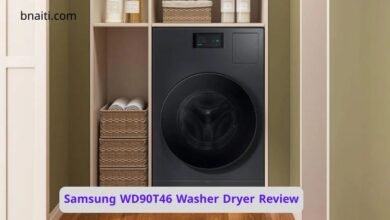LG vs Samsung Washing Machines: The Ultimate 2025 Comparison
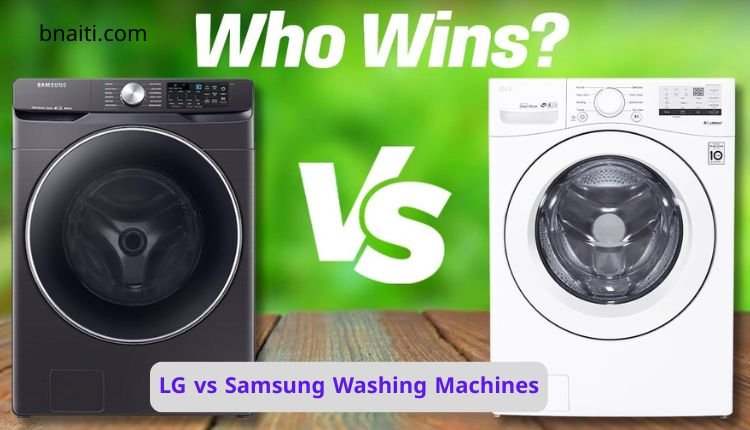
When it comes to home appliances, few rivalries are as closely matched as LG vs Samsung washing machines. Both brands have earned global trust for their quality, innovation, and reliability.
In 2025, the competition is fiercer than ever as each continues to push the boundaries of what a washing machine can do — blending cutting-edge technology with stylish design and eco-friendly performance.
Choosing between these two powerhouses can feel overwhelming. LG emphasizes long-term durability and intelligent fabric care, while Samsung is all about futuristic design, AI-driven smart features, and superior convenience.
This comprehensive guide breaks down their differences across the key categories that matter most: design, washing performance, energy efficiency, smart features, noise levels, durability, and value for money.
By the end, you’ll know which washing machine brand best fits your lifestyle and laundry needs.
Design and Build Quality: Functionality Meets Futurism
When evaluating washing machines, design goes beyond aesthetics — it’s about usability, durability, and how seamlessly the appliance fits into your home.
LG washing machines are known for their minimalist and practical design philosophy. They feature clean lines, intuitive LED panels, and sturdy mechanical knobs that prioritize user-friendliness. Internally, LG uses stainless steel drums designed to resist rust and wear over years of use.
This gives their machines a timeless appearance that blends effortlessly into modern and traditional interiors alike.
Samsung washing machines, by contrast, embrace a more futuristic, high-tech aesthetic. With bold curves, sleek chrome finishes, and high-contrast digital displays, Samsung appliances make a visual statement.
Many models feature touch-sensitive control panels, offering a luxurious, modern interface. Although some users find these less intuitive than LG’s tactile knobs, Samsung’s design clearly targets the tech-savvy generation that values innovation as much as performance.
In terms of build quality, both brands use premium materials and stainless steel drums, but LG’s restrained design feels sturdier and more traditional, while Samsung’s approach emphasizes innovation and visual flair.
Verdict:
If you prefer timeless, durable design — go LG.
If you love futuristic, bold aesthetics — Samsung takes the lead.
“Read Also: How Washing Machines Work“
Washing Performance: Innovation in Action
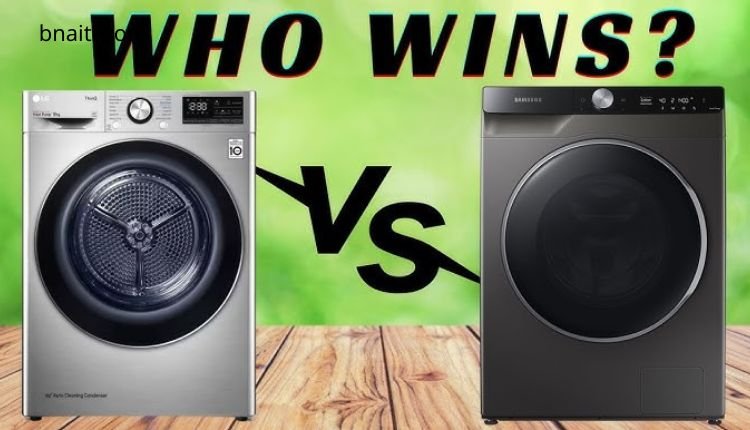
Performance is the beating heart of any washing machine, and this is where both LG and Samsung shine.
LG’s Six Motion Direct Drive technology is the cornerstone of its washing performance. This advanced system mimics hand-washing movements by using six unique motions — rolling, tumbling, stepping, scrubbing, filtration, and swinging — to adapt the wash to different fabric types. Whether it’s delicate silk or heavily soiled denim, LG provides a gentle yet powerful clean.
Another innovation is TurboWash, which uses high-pressure jets to cut washing time by up to 30 minutes while maintaining deep cleaning results. Specialized cycles such as Allergy Care and Baby Steam Care use steam to sanitize clothes and eliminate allergens — ideal for families and sensitive skin.
On the other hand, Samsung’s Ecobubble technology mixes air, water, and detergent before the wash begins, creating bubbles that penetrate fabric faster and allow cleaning at lower temperatures. This means energy-efficient washing without compromising performance.
Samsung’s QuickDrive technology further reduces cycle times by up to 50% using dual rotating drum movements, ensuring fast, thorough cleaning.
A standout feature in Samsung’s range is AddWash — a small, secondary door that lets users add forgotten clothes mid-cycle. It’s a simple yet game-changing convenience feature that highlights Samsung’s user-focused innovation.
Verdict:
- LG wins for fabric care, deep cleaning, and specialized steam cycles.
- Samsung dominates for innovation, speed, and convenience.
“Read Also: Best 8 KG Top Load Washing Machines“
Energy Efficiency: Saving Power, Saving Money
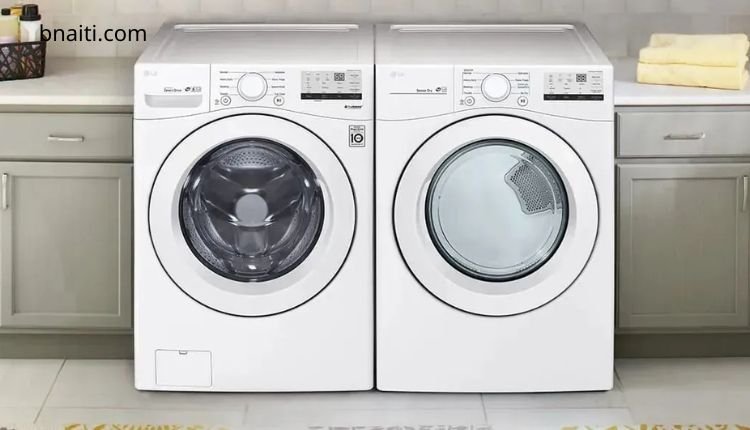
Energy efficiency has become a major deciding factor in 2025, not just for environmental reasons but also to combat rising electricity costs.
LG employs Direct Drive Motor technology, which eliminates belts and pulleys, minimizing friction and energy loss. This design results in top-tier energy ratings and quieter operation.
Many LG models also use Eco-Hybrid technology, allowing users to switch between energy-saving or faster drying modes, depending on their needs. Additionally, LG’s load-sensing mechanism optimizes water usage, preventing waste and ensuring sustainable operation.
Samsung, meanwhile, uses Digital Inverter Motors powered by strong magnets, offering high efficiency and low noise levels. Combined with its Ecobubble system, Samsung machines can deliver excellent results at cooler temperatures, further enhancing efficiency. Many Samsung models also include Eco Cycles designed to minimize water and power consumption even at full loads.
Verdict:
Both are efficient, but LG holds a slight advantage due to its Direct Drive Motor and Eco-Hybrid technologies, providing superior energy conservation without compromising performance. Samsung, however, remains a top pick for cold-water washing and energy-smart cleaning.
“Read Also: الغسالة لا تصرف الماء“
Smart Features: The Future of Laundry Is Here
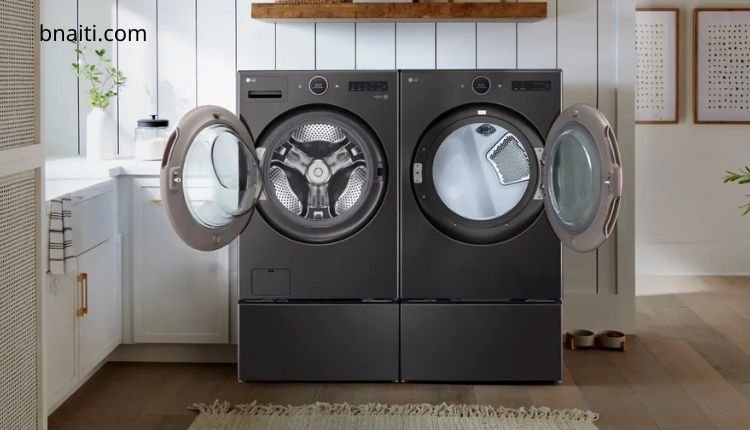
In 2025, washing machines are no longer just about cleaning clothes — they’re about smart living. Both brands have embraced IoT (Internet of Things) connectivity, allowing you to control your washer remotely and integrate it into your smart home ecosystem.
LG’s ThinQ technology enables users to control and monitor their washer through the ThinQ app, available on Android and iOS.
It supports voice commands via Alexa and Google Assistant, meaning you can start or stop a cycle hands-free. LG also includes Smart Diagnosis, which detects potential mechanical issues before they escalate, reducing the need for service calls.
Samsung’s SmartThings platform, on the other hand, is one of the most advanced ecosystems in the smart home space. The SmartThings app provides detailed control, including remote start, energy tracking, cycle recommendations, and real-time notifications.
Samsung’s AI-powered Wash cycles even learn from your laundry habits, automatically suggesting the best settings for each load.
Verdict:
- LG offers reliability and simplicity with ThinQ.
- Samsung takes smart functionality to the next level with AI learning and advanced ecosystem integration.
Noise Levels: Quiet Operation Matters
A washing machine’s noise level can make or break its practicality, especially in open-concept homes or small apartments.
LG has an advantage here with its Direct Drive Motor and anti-vibration design. These elements work together to minimize noise and vibration, even during high-speed spin cycles. Many LG models are marketed as ultra-quiet, making them ideal for laundry areas near living spaces or bedrooms.
Samsung counters with its Vibration Reduction Technology Plus (VRT+), which uses advanced drum balancing systems to stabilize the machine during cycles. While effective, some users report that Samsung machines are slightly noisier than LG’s under heavy loads.
Verdict:
If peace and quiet are a top priority, LG is the quieter choice. Samsung performs well but doesn’t match LG’s whisper-level operation.
“Read Also: أفضل الغسالات الأوتوماتيكية“
Durability: Built to Last
Durability is where LG truly excels. Its Direct Drive Motor has fewer moving parts, resulting in less mechanical wear and a longer lifespan. Most LG washers come with 10-year motor warranties, underscoring the brand’s confidence in its engineering.
Samsung machines are also built to high standards, but some users have noted occasional control panel issues or sensitivity in touch interfaces. Nevertheless, Samsung continues to improve its build quality with newer, more robust components.
Verdict:
Both are reliable, but LG has the edge in long-term durability and mechanical reliability.
Value for Money: What’s Worth Your Investment?
When assessing value, both brands deliver exceptional returns — it just depends on what you prioritize.
LG offers dependable, long-term performance at a fair price. You might not get flashy extras like Samsung’s AddWash door, but you gain a quiet, efficient, and durable washer that lasts for years.
Samsung targets buyers who want innovation and style. You’re paying for futuristic design, smart connectivity, and advanced features that elevate convenience and performance. While Samsung’s machines may cost a bit more, they often justify it through cutting-edge technology and premium aesthetics.
Verdict:
- Choose LG if you value reliability, quiet operation, and simplicity.
- Choose Samsung if you want innovation, connectivity, and a future-ready appliance.
Final Verdict: LG vs Samsung — Which One Should You Choose?
After a thorough comparison, the LG vs Samsung washing machine debate ultimately comes down to your personal priorities:
- If you want longevity, quiet operation, and dependable cleaning, LG is the smarter, more practical choice.
- If you value innovation, smart connectivity, and sleek design, Samsung is the better fit.
Both brands deliver excellence in their own way, and either choice will bring years of reliable performance. LG edges ahead in durability and efficiency, while Samsung leads in innovation and smart technology.
Conclusion: The Perfect Washer Depends on You
In 2025, both LG and Samsung have redefined what modern laundry looks like. LG gives you a timeless, sturdy workhorse that focuses on efficiency and reliability. Samsung gives you a sleek, intelligent machine that connects seamlessly with your lifestyle.
The best washing machine isn’t about the logo — it’s about what fits your household rhythm, your preferences, and your values. Whether you lean toward LG’s long-term reliability or Samsung’s futuristic vision, rest assured: you’re choosing from two of the world’s most trusted washing machine brands.

